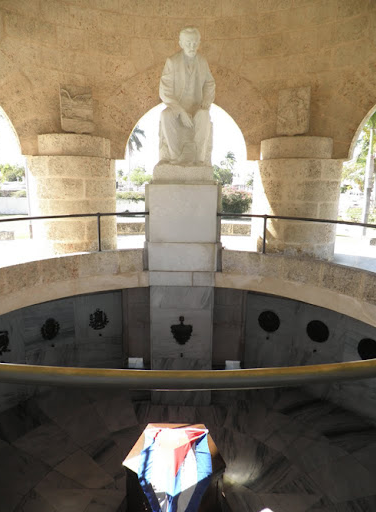
Havana, May 19 (RHC) -- Cuba evokes this Sunday the life, work and thoughts of the National Hero José Martí, on the occasion of the 129th anniversary of his fall in combat for the freedom of the island.
The traditional tribute before the Mausoleum that keeps his remains in the Santa Ifigenia cemetery, in the eastern province of Santiago de Cuba, is joined by others in this nation and abroad to revere the life dedicated to freedom, and the anti-imperialist and Latin American legacy. of the qualified Apostle of the nation's independence.
José Martí (1853-1895) was the architect of what he called the necessary war, aimed at breaking the subjection of the island to the Spanish colonial yoke, for which he founded the Cuban Revolutionary Party and the newspaper Patria, and united the patriots Cubans around the idea of independence.
The revolutionary poet, essayist and journalist found his death at only 42 years old on the plains of Dos Ríos, hit by a volley of enemy rifle fire while he was riding at the front accompanied by his assistant, despite the recommendation of the General in Chief of the Liberation Army, Máximo Gómez, to remain in the rearguard.
A day before, in an unfinished letter to his friend Manuel Mercado, he wrote: “I am already in danger every day of giving my life for my country and for my duty (…) to prevent in time with the independence of Cuba from spreading throughout the Antilles the United States and fall, with that force, on our lands of America.”
His ethical values did not allow him to remain behind the men he had called into combat. “I evoked the war: my responsibility begins with it, instead of ending. For me, the country will never be a triumph, but rather agony and duty, he had stated.
Martí's premature physical disappearance was a severe blow to the revolution that began on February 24, 1895, but his personal virtues and emancipatory legacy transcended Cuba's struggles for its definitive independence.
The most universal of Cubans, as he is also known, surpassed the boundaries of his time and became the greatest Latin American political thinker of the 19th century.
His high culture and special sensitivity allowed him to leave a vast written work, of singular style and beauty, which constitutes an essential reference for all generations of Cubans. (PL)

